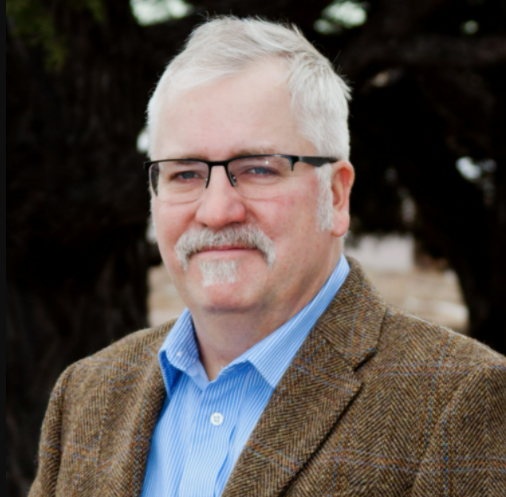 Court Merrigan, AFM, is a member of both the Nebraska and Wyoming Chapters of the ASFMRA. He joined the ASFMRA in April of 2020 and recently earned his AFM designation in January, 2022.
Court Merrigan, AFM, is a member of both the Nebraska and Wyoming Chapters of the ASFMRA. He joined the ASFMRA in April of 2020 and recently earned his AFM designation in January, 2022.
When did you begin working in agriculture?
At birth. I’m old enough that when I was growing up on the farm when there were no pivots, there were open cab tractors and a lot of shoveling. I grew up on a farm in western Nebraska. I live in eastern Wyoming now, but I’m just 30 miles from the farm I grew up on, which is still in the family. We have some other land that I’m hoping to pass onto my kids -- they’ll be the 5th generation to own it.
What ag issues are you passionate about or interested in?
I’ve recently switched up my career path, so now land prices and where that’s going is of a lot of interest to me. In this area land is traditionally, and still is, much cheaper than it is in the Corn Belt, but we’re really seeing that begin to change. What type of cycle are we headed into? Is a four a new three, or are we going to see some pullback before much longer? It depends on a lot of factors. I’m also deeply involved in the alfalfa hay market, particularly for dairy-quality hay, so that is something I always keep an eye on.
How does it feel to earn to have earned your AFM designation?
In terms of a process, it was considerably more rigorous than I expected it to be at the outset. You know, I grew up on a farm, I manage farms now - I thought, “how hard could it be?” But it was quite rigorous, and I appreciate that because I use a lot of the stuff that I learned in my daily life, which I cannot say about my master’s degrees. It feels good to have earned it, to have that [designation] stamp and say I did it.
Do you have any big takeaways from getting your designation?
You know, I appreciate the mathematical rigor. The ability to look at things in terms of “internal rate of returns” and “net future values,” which I had known about conceptually but didn’t know how to apply in a real-life situation. I find that extremely useful because people ask for that sort of thing all the time. You've got to be able to speak to it, and I don’t think I adequately could have until I took my accreditation courses. For me, that was the single biggest takeaway from the process. I’ve always had an intuitive sense of agriculture in the area I grew up, but being able to apply the theory to what I already knew has been enormously helpful.
Are there any experiences in your career that have been especially rewarding for you?
One of the things I have done several times now is take a farm that was marginal or close to marginal and improve it by adding pivots, fertility practices and better marketing, and turning a farm that was a project into a profitable enterprise for the owner. That has been really good to experience. I’m friends with those people now, they’re not just clients anymore. It’s really fun to be able to do that in the real world.
Any personal details you’d like to share with the Society?
I do all the professional things that I do so that I can tend to my real job, which is chasing my kids around and being a chauffeur for them. My boy plays basketball, my daughter runs track and cross country, and I very often take off my work hat and boots and put on baseball gear and go up to the park. I like to keep my kids connected to agriculture even if I’m not a farmer myself. Having roots here in this area and having the ability to do what my dad did and drop my kid off in a field and say “OK, here’s your job, bye!” and let them figure it out. That might be the single most valuable thing I learned growing up on a farm and I’m trying to pass that along to my own kids now.